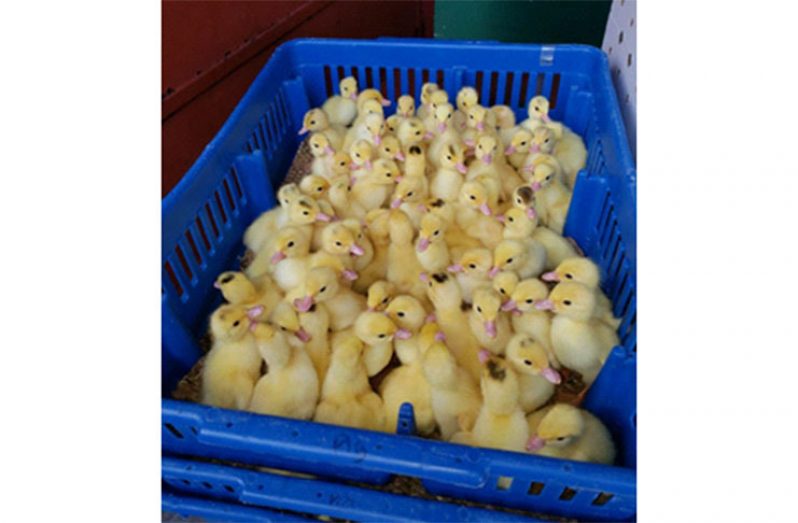– believes egg, duckling smuggling likely cause of Duck Hepatitis
IF Duck Viral Hepatitis (DVH) is confirmed by laboratory tests, the Guyana Livestock Development Authority (GLDA) believes that the disease could have been introduced through illegal importation of hatching eggs or ducklings.
GLDA, in a notice, said illegal importation of livestock and livestock products into Guyana poses serious risks to the health of humans and animals since it reduces the authority’s ability to ensure that whatever is imported is free from diseases.
“Apart from our suspicions of the smuggling of hatching eggs and ducklings, we have encountered too many cases of the smuggling of dogs and birds into Guyana,” the authority said.
Dogs are affected by numerous diseases such as rabies and leptospirosis which are both detrimental to humans and animals, while birds can be affected by avian influenza, among other diseases.
In light of this, the public was encouraged to partner with GLDA to safeguard the health of the nation by reporting all instances of illegal animal import (smuggling) to the GLDA or nearest police station.
Having received reports of high mortality of ducklings, an investigation was conducted by GLDA on the affected farms where Duck Viral Hepatitis (DVH) was viewed as the suspected primary cause of death.
Suspected DVH was detected in Regions Three (Essequibo Islands-West Demerara), Four (Demerara-Mahaica) and Six (East Berbice-Corentyne).
Samples were collected, processed and shipped to the Cornell University Duck Research Laboratory for confirmation.
The disease has not manifested itself in the other poultry sectors such as chicken, turkey and Guinea bird, and was only observed in the Muscovy ducklings.
While this suspected disease is not treatable, Guyana awaits a response from the laboratory to guide its future course of action to safeguard animal health.
CONTAINED
“We wish to further indicate that, to date, only the six private farms are affected by this disease outbreak and we have successfully been able to contain it, mainly as a result of our actions to close our hatchery, quarantine the affected farms and restrict the movements of ducklings. To date, the GLDA’s duck unit at Mon Repos has not been affected nor has shown any signs or symptoms of this diseases,” said the GLDA.
The authority is convinced that this outbreak has affected only the six quarantined farms.
Further, in order for GLDA to continue providing quality breeding material to the duck farming community, it has imported 1,400 breeding ducklings, which will assist in the rebuilding of the sector.
“These ducklings were imported from the US and they were declared free of any infectious or contagious disease such as Duck Virus Hepatitis, Duck Virus Enteritis, Cholera, Salmonella and other such diseases by the US Department of Agriculture. The hatchings from this importation would be sold to the farming community for rearing for meat production,” said GLDA Chief Executive Officer, Nigel Cumberbatch.
The Muscovy ducks are used primarily for meat production as the meat is less greasy and contains less fat than the other breeds of ducks. Additionally, male Muscovy ducks can attain as much as 5.5 kg within 12 weeks once proper animal husbandry is practised.
GLDA has the responsibility to promote a vibrant livestock industry which provides safe food for the population and generates income for rural and urban households, all while making optimal use of available resources and competing with producers beyond local borders.




.png)









